BBCS Postdoc and Faculty Lead ICCB Symposium in Brisbane
Laying the groundwork for the future of urban wildlife conservation
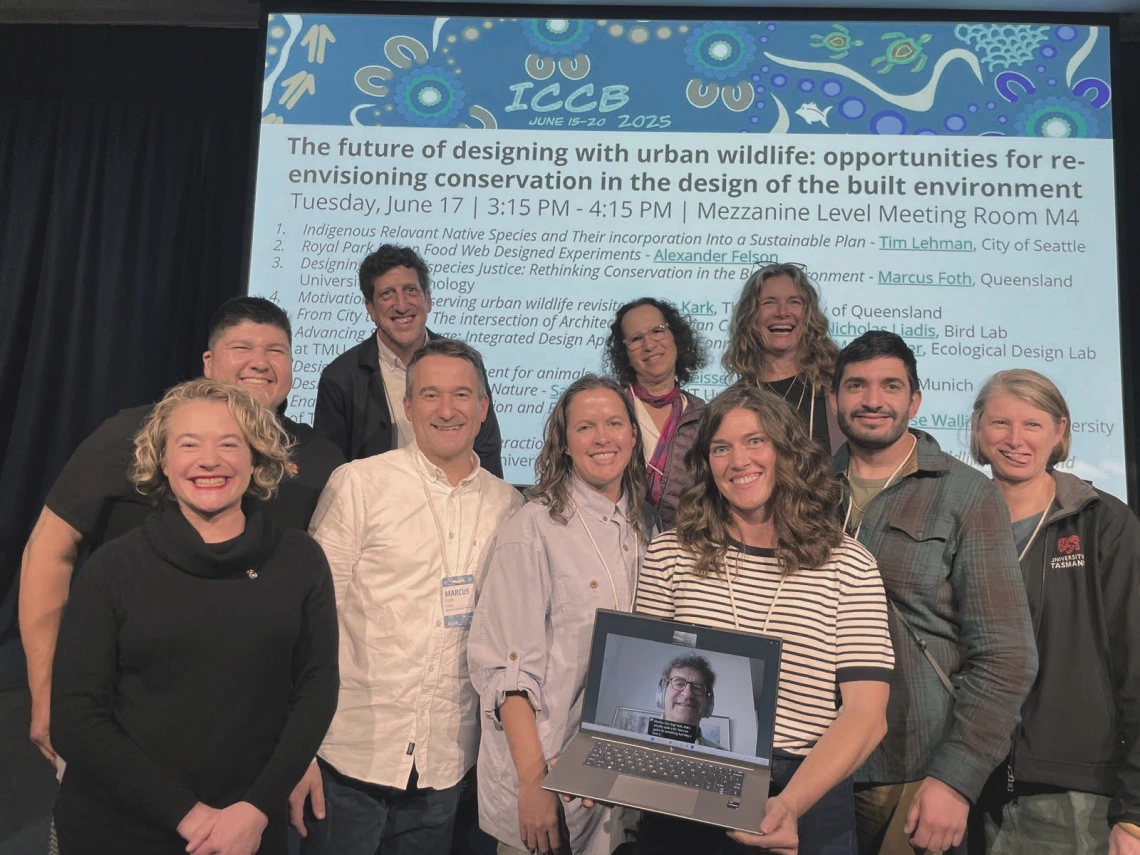
“People design cities where humans and wildlife exist.”
It’s a simple way to describe a complex problem. Brought together by the Lovejoy Center’s Bridging Biodiversity and Conservation Science (BBCS) program, BBCS Postdoc Dr. Jessie Golding and Faculty Affiliate Assistant Professor Mackenzie Waller found a common interest: addressing the needs of people and wildlife in environments built by people.
“Unfortunately, much of the work on how to design cities effectively for people and how to conserve wildlife occur in different disciplines that don’t interact,” said Jessie and Mackenzie. They soon recognized that while there was innovative work on this topic occurring around the world, many efforts were occurring in isolation.
They felt that in order for the growing discipline of urban conservation design to advance, the people leading these efforts needed a chance to convene, share ideas, and identify how they were effectively designing for people and wildlife.
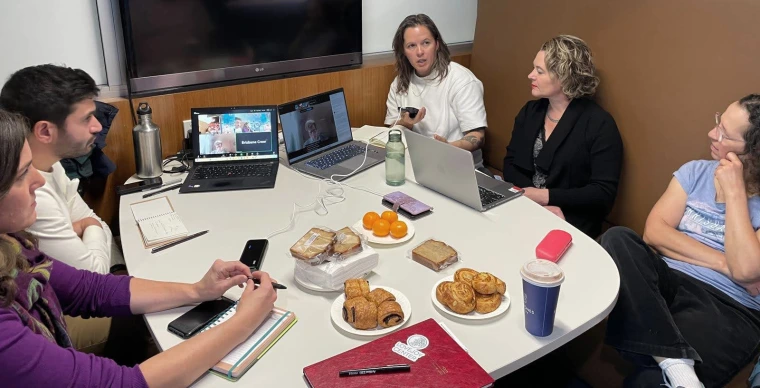
A writing workshop at ICCB 2025.
After a year of assembling a team of nine global experts, undergoing a competitive selection process, and leading regular gatherings with their working group, Jessie and Mackenzie hosted their popular symposium at the International Congress for Conservation Biology (ICCB) in Brisbane, Australia, from June 14-18, 2025. Titled “The Future of Designing with Urban Wildlife,” the event will result in two peer-reviewed publications in addition to renewed enthusiasm for collaboration between architects and conservation scientists to advance the methods, tools, and metrics of urban ecological design for wildlife.
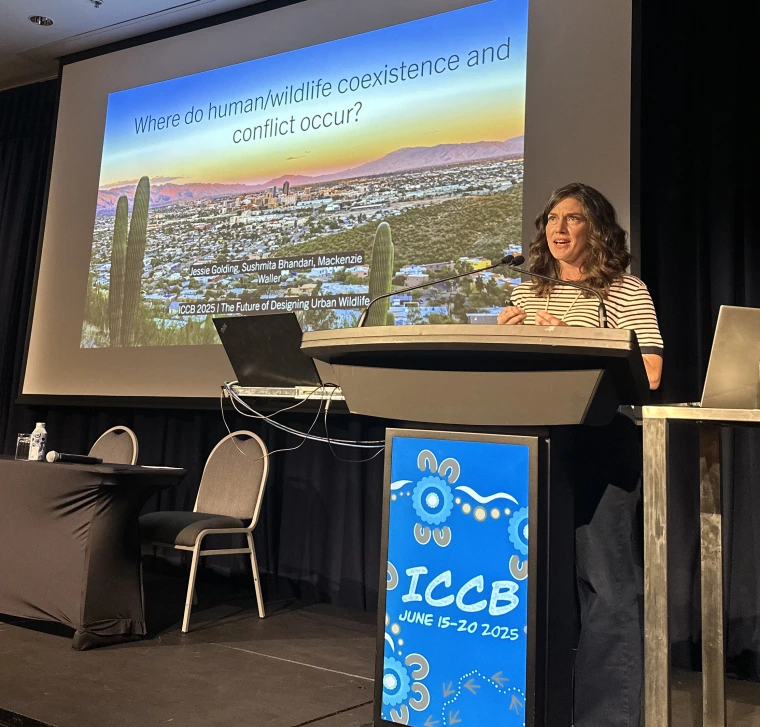
Jessie Golding, BBCS postdoc, presenting at ICCB 2025.
“Biodiversity conservation isn’t a straightforward formula – it’s a long-term, iterative process informed by knowledge, experience, and partnerships. In my experience, the only way to make that whole process work is by building partnerships to learn and work together,” said Jessie. “The support from the Lovejoy Center for Mackenzie and I to organize and convene a group of interdisciplinary urban wildlife conservation experts at the 2025 ICCB Conference in Brisbane allowed us to build these partnerships.”
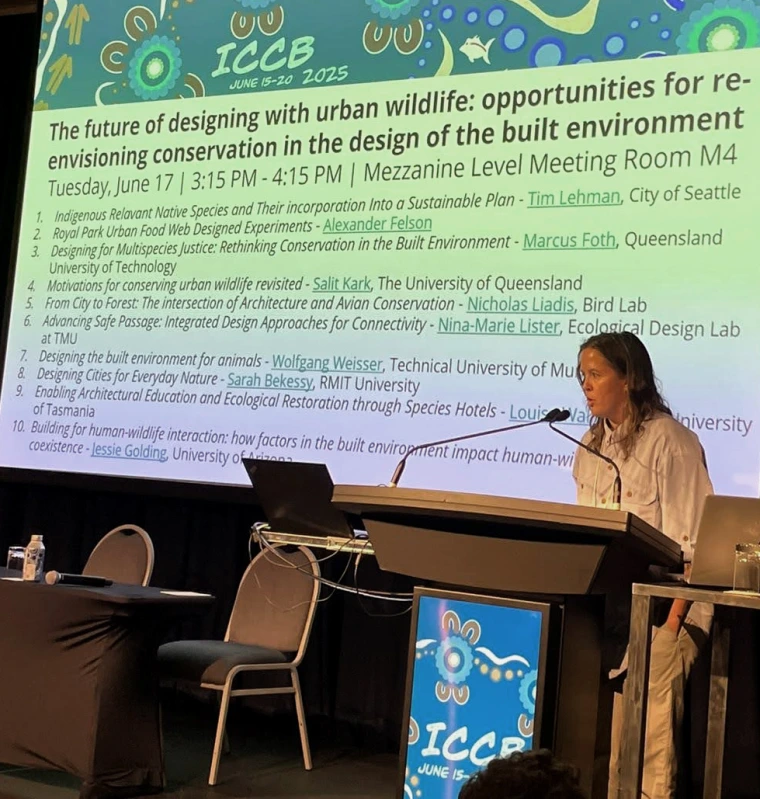
Mackenzie Waller presenting at ICCB 2025.
In a globalized world where virtual meetings abound, sometimes making the trip is what actually drives engagement and connection. Not only did Mackenzie and Jessie foster a community of experts, they laid the groundwork for creating a space to define and expand what urban wildlife conservation can be. “This multi-day gathering was impactful because it supported a lasting framework for collaboration. We had shared field experiences, productive co-writing sessions, and interdisciplinary dialogue that built trust, aligned objectives, and established a long term structure for meaningful contributions to urban wildlife biodiversity conservation,” said Mackenzie.
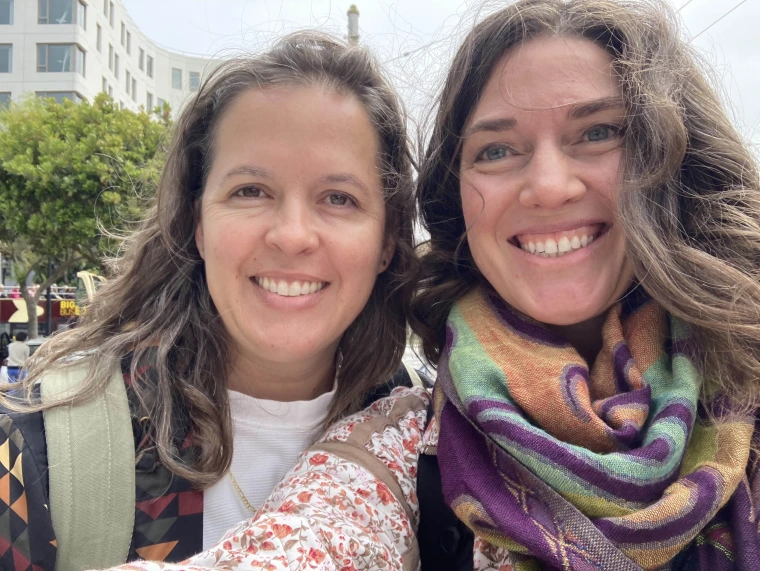
Symposium cohosts Jessie Golding and Mackenzie Waller.
ICCB is a global forum for addressing conservation challenges with over 1,500 attendees.
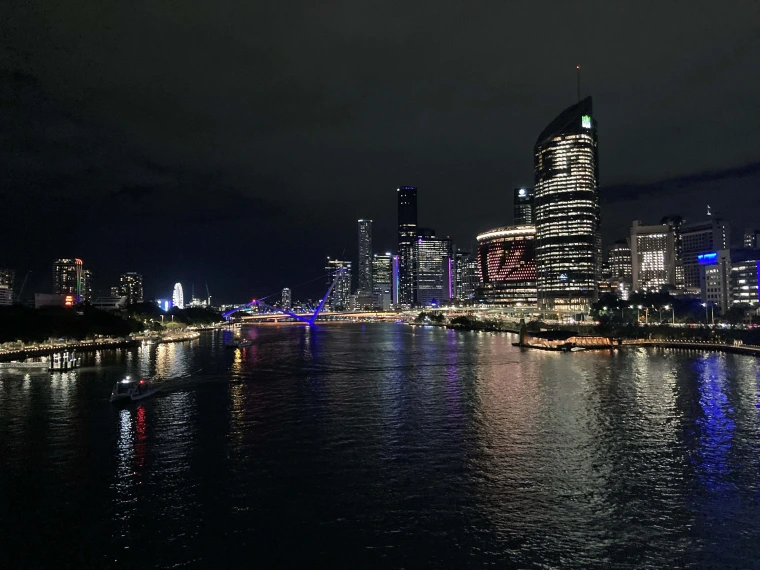
Brisbane at night.

